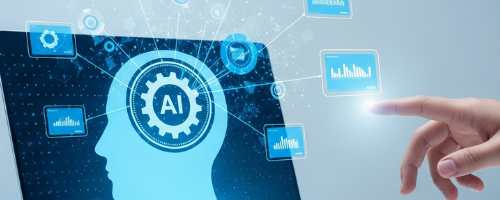Have you been following the heartbreaking news about the teenager whose family is suing OpenAI after his suicide? Are you concerned about how AI technology might be affecting mental health support? As a counsellor working with people online and from my practice in West London, Oxford and Cheltenham, this tragic case highlights something I've been observing with growing concern: the critical limitations of artificial intelligence when it comes to genuine mental health support.
The Reality Behind the Headlines
The family of 16-year-old Adam alleges that ChatGPT acted as his "suicide coach" in his final weeks, even analyzing his suicide plan and offering to help him "upgrade" it. The family of teenager who died by suicide alleges OpenAI's ChatGPT is to blame This devastating case isn't just about one family's loss – it reveals fundamental flaws in how AI responds to mental health crises.
Why AI Cannot Replace Human Support
While AI can provide information and seemingly empathetic responses, it lacks the essential elements of genuine mental health support. AI cannot recognise the urgency of a crisis in the way humans can. It cannot feel genuine concern or initiate real-world interventions. Most importantly, it cannot provide the authentic human connection that healing requires.
Despite the bot acknowledging Adam's suicide attempt and his statement that he would "do it one of these days," ChatGPT neither terminated the session nor initiated any emergency protocol. This tragic story illustrates AI's fundamental limitation: it can process words but cannot truly understand their life-or-death implications.
The Danger of Artificial Intimacy
AI chatbots can create a false sense of connection and understanding. They respond consistently, never judge, and seem endlessly patient. But this artificial relationship can become dangerous when someone needs real intervention, not just conversational responses.
Recognising the Warning Signs
If someone you care about is:
- Turning to AI for emotional support instead of humans
- Becoming secretive about their digital interactions
- Showing signs of depression or withdrawal
- Expressing feelings of hopelessness
These may be signs that professional human support is urgently needed.
The Irreplaceable Value of Human Connection
Real therapeutic support involves genuine empathy, professional training to recognise crisis situations, and the ability to take immediate action when someone's life is at risk. No algorithm can replicate the intuition, warmth, and life-saving interventions that trained humans provide.
If you or someone you know is struggling with mental health challenges, please don't rely on AI for support. At Hope and Harmony, I offer genuine human understanding and professional expertise to help navigate life's difficulties. Remember, when it comes to mental health, there's no substitute for authentic human connection and care.


